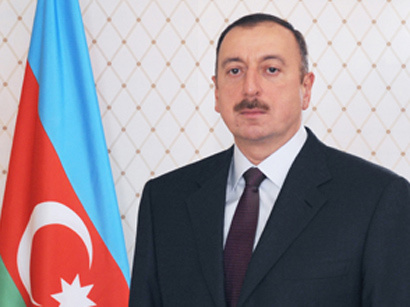President of the Republic of Azerbaijan

"Today multiculturalism is a state policy as well as lifestyle in Azerbaijan."
On November 25, a presentation ceremony was held for the book titled “Azerbaijani Multiculturalism: The Treasure of Ethnic Diversity,” published with joint financial support from Baku International Multiculturalism Center (BIMC) and Moral Values Promotion Fund. Printed in English and in an elegant design, the book deals with the culture of the ethnicities living in Azerbaijan.
Anar Rahimov, a senior teacher of the Innovations in Education department of Azerbaijan University of Languages and deputy dean of the faculty of Additional Education and Practice, has given lectures in prestigious state universities of the Kingdom of Morocco with the organizational support of Baku International Multiculturalism Center.
A scientific conference titled “Azerbaijan: History, Society and Culture” was held in Warsaw.
A meeting has been held in Baku International Multiculturalism Center with a group of US Senators visiting our country for participation in the Second Baku Summit of World Religious Leaders.
At the Baku International Multiculturalism Center (BIMC), a meeting was held with Johnnie Moore, the founder and president of the Interdenominational Congress of Christian Leaders, who arrived in our country to attend the II Baku Summit of World Religious Leaders.
Baku International Multiculturalism Center (BIMC) has been implementing the project on teaching the subject of Azerbaijani multiculturalism at local and foreign universities since 2015.
Irina Kunina, a representative of the Baku International Multiculturalism Center with Ph.D. in Philology, spoke in detail about ethnocultural and confessional diversity in our country
Irina Kunina, a representative of the Baku International Multiculturalism Center who is a teacher at the Chair of International Relations of the Azerbaijan University of Languages, spoke in detail about ethnic groups in Azerbaijan
PDF version of the book "THE PRESIDENT OF THE REPUBLIC OF AZERBAIJAN ILHAM ALIYEV ON THE AZERBAIJANI MODEL OF MULTICULTURALISM" published by the Baku International Center for Multiculturalism in 2019 in Spanish, Italian and French
The event was organized by the Baku International Multiculturalism Centre and the Embassy of Azerbaijan in Argentina.
The colleague of Baku International Multiculturalism Centre, PHD in philology Irina Kunina made a speech with presentation on the ethno-cultural and confessional diversity in our country, the implementation of multiculturalism in the context of state policy in Azerbaijan, as well as the global role of Azerbaijan in the "Baku Process", intercultural and interreligious dialogue.
Kyrgyzstan’s capital Bishkek has hosted an international scientific-practical conference on “Secularism and religion in the Post-Soviet space: aspects of historical, legal and philosophical outlook” co-organized by the International Center for Law and Religion Studies of Brigham Young University of the United States, the UNESCO Chair on world religions and cultures of the Kyrgyz-Russian Slavonic University and the Research Center for Religious Studies.
“Interest in the Azerbaijani Multiculturalism course in Brazil grows every day,” says Ms. Irina
Today the Republic of Azerbaijan is known to be one of the main multiculturalism centers in the world.
A series of lectures on the theme of multiculturalism are being conducted at Brazil’s State University with the support of Azerbaijan University of Languages (AUL), Azerbaijani Embassy in Brazil and Baku International Multiculturalism Center.
The Baku International Multiculturalism Centre successfully continues the project of teaching Azerbaijani Multiculturalism in local and foreign universities.
In the Turkish city of Kayseri, at the Erciyes University, the teaching of the “Azerbaijani multiculturalism” discipline continues.
For centuries, Azerbaijan has been a centre for the integration of various cultures and civilizations.
Holding an international conference on Caucasian Albania in the Albanian-Udi centre in the Nij village of the Gabala region is of particular importance. Since it is the Udis who are considered to be descendants of Caucasian Albania.